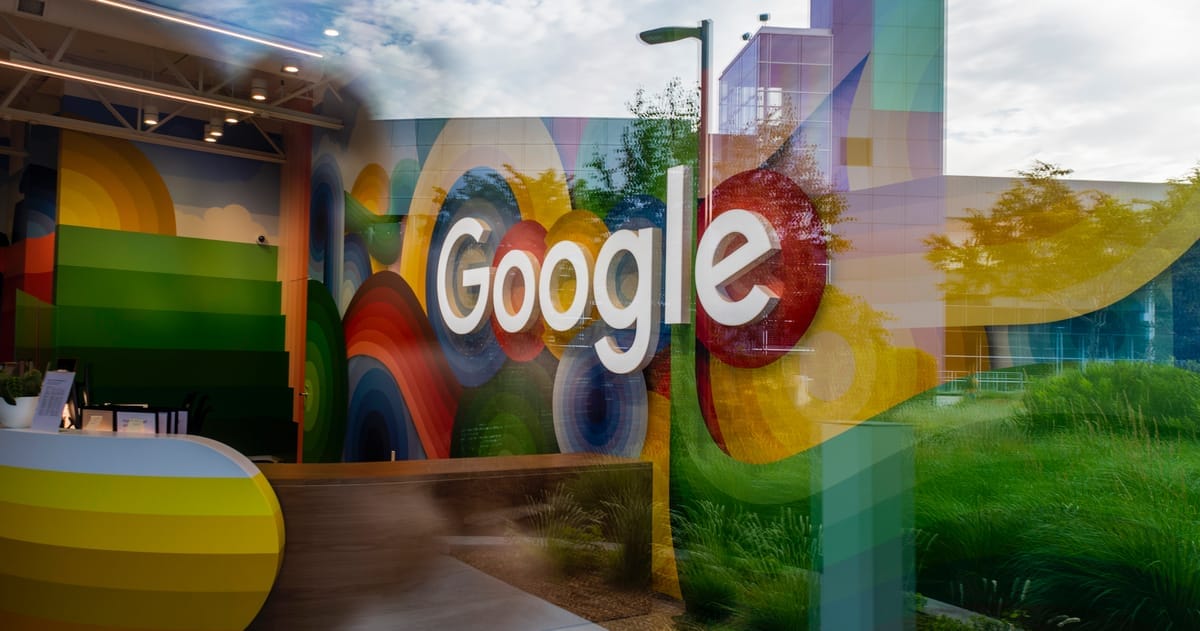The Google decision isn't popular but it's the right one

A little over a year ago, things looked fairly bleak for Google on the legal front (and on other fronts, but we'll get to that). In August last year, Judge Amit Mehta of the District of Columbia handed down a decision in the US government's antitrust case against the search giant that could not have been more blunt: "Google is a monopolist, and it has acted as one to maintain its monopoly," he ruled. This is one of the core tenets of antitrust law — not just the existence of a monopoly, but employing illegal methods in order to maintain that monopoly. In particular, Mehta ruled that the payments Google makes to Apple and other companies in return for being the default search engine — payments that totaled more than $20 billion dollars last year — were anti-competitive. So a slam-dunk decision, right? Google has to be broken up, has to sell off Chrome, has to stop paying Apple and others billions of dollars, etc. Right? Not exactly.
The judge's definitive ruling certainly convinced some people that all of these remedies were both necessary and likely, including Tim Wu — the Columbia Law professor (and former special assistant to Obama on competition policy) who came up with the term "net neutrality" back in the day. Wu wrote a piece for the New York Times that sounded like he was dancing on Google's grave, and that the remedies listed above — selling off Chrome, dismantling the company's search business, etc. — were almost a fait accompli (although he hedged his bets). But as it turns out, Mehta did virtually none of those things in his decision on remedies, which came out late Tuesday. No forced sell-off of Chrome or Android. No end to the billion-dollar payments to Apple and others for search. No requirement to share real-time search-index data with competitors (although some sharing is required). Here's how Bloomberg described it:
Alphabet Inc.’s Google will be required to share online search data with rivals while avoiding harsher penalties, including the forced sale of its Chrome business, a judge ruled in the biggest US antitrust case in almost three decades. Tuesday’s ruling represents a blow to the government, falling far short of the most severe remedies sought by antitrust enforcers after the court found Google illegally monopolized the search market. Judge Amit Mehta said he will bar Google from entering into exclusive contracts for distribution but would still allow the search giant to pay its partners — a key win for Apple Inc., which has received roughly $20 billion a year for making Google search the default on iPhones. The finding follows the Washington, DC, judge’s ruling last year that Google illegally monopolized the markets for online search and search advertising. Mehta held a three-week hearing in April to determine a fix.
So what happened? If you listen to some of Google's critics — like Matt Stoller of the American Economic Liberties Project — the judge caved, whiffed, screwed up. I'm sure someone somewhere is accusing Google of buying the judge, and there have certainly been rumors that Google is about to cut a deal with the president on a legal case where Trump sued for being banned from YouTube after January 6th, implying there's a quid pro quo involved in the anitrust decision. Which is a great conspiracy theory (and there have been similar comments about Apple buying Trump's favor on tariffs by handing him a literal bar of gold) but it seems extremely unlikely — for the simple reason that Trump and the White House have little or no sway over Judge Mehta and how he chooses to rule.
Mehta has also shown in the past that he is more than happy to rule against Trump in other cases, even when he comes under significant pressure. So then why did the judge decide to water down his remedies after conclusively ruling that Google was not only a monopolist, but one that had used unfair methods to maintain its market power? I think it's possible — maybe even probable — that Judge Mehta decided the extreme remedies sought by the government were not warranted, and might even cause more problems than they would solve. Unlike Stoller and other critics (including Tim Sweeney of Epic Games), I also happen to think that Mehta's decision on remedies was mostly right, and that much of what the government has argued about Google and its market power either misses the point or has been overtaken by events since the suit was filed.
Note: In case you are a first-time reader, or you forgot that you signed up for this newsletter, this is The Torment Nexus. You can find out more about me and this newsletter in this post. This newsletter survives solely on your contributions, so please sign up for a paying subscription or visit my Patreon, which you can find here. I also publish a daily email newsletter of odd or interesting links called When The Going Gets Weird, which is here.
No more exclusivity

One thing that Mehta's decision did do was to ban Google from engaging in any exclusive agreements with software or device makers that require them to support or build in Google services as a condition of getting some other benefit. In antitrust terms, this is known as "tying," and it is what Microsoft was found guilty of in 1998 — the last significant tech antitrust case until the Google and Meta lawsuits. In Microsoft's case, the software company required PC manufacturers to include its Internet Explorer browser whether they wanted to or not, as a condition of getting a license to install Windows (as an aside, product tying is also what every cable company does when it forces you to subscribe to a bunch of channels you don't want in order to get the one that you do want, but I digress). Here's how Mehta's decision on remedies describes the new world:
Google will be barred from entering or maintaining any exclusive contract relating to the distribution of Google Search, Chrome, Google Assistant, and the Gemini app. Google shall not enter or maintain any agreement that (1) conditions the licensing of the Play Store or any other Google application on the distribution, preloading, or placement of Google Search, Chrome, Google Assistant, or the Gemini app anywhere on a device; (2) conditions the receipt of revenue share payments for the placement of one Google application (e.g., Search, Chrome, Google Assistant, or the Gemini app) on the placement of another such application; (3) conditions the receipt of revenue share payments on maintaining Google Search, Chrome, Google Assistant, or the Gemini app on any device, browser, or search access point; or (4) prohibits any partner from simultaneously distributing any other GSE, browser, or GenAI product.
As Ben Thompson notes at Stratechery, most of these steps had already been proposed and in some cases implemented by Google, so that seemed like an obvious place to start. "This is literally illegal behavior, so ending it was the bare minimum," as Thompson puts it. The next step for the remedies phase was to do what the judge described in his decision as "denying the fruits of the violation" — in other words, forcing Google to give up some or all of the benefits that it obtained from these anti-competitive agreements, in order to "effectively pry open to competition a market that has been closed by [the company's] illegal restraints." According to Mehta, Google's past behavior achieved several major goals that needed to be either dismantled or unwound:
— It foreclosed a substantial portion of the relevant markets, thus impairing or removing its rivals’ opportunities to compete
— It denied rivals access to its user queries, which in turn denied them the ability to scale to a size needed to effectively compete
— It reduced the incentive to invest and innovate in search, which by extension deprived the industry and users of competitors
— It enabled Google to increase text ads prices without any meaningful competitive constraint, thereby allowing Google to earn monopoly profits
One of the main remedies Mehta decided upon (or possibly the only one, if you listen to the critics of his decision) was to force Google to share data from its all-powerful search index with competitors. However, competitors will not get a real-time feed of data generated by Google's search algorithm, as some had hoped. Instead, recognized competitors (including AI companies, many of whom are probably celebrating this decision) will get a one-time snapshot of the data, and will only get two snapshots of Google's "click and query" data, which shows what users clicked on out of the results they were shown. A technical committee that has to be set up by the courts at some point in the future will decide how much of this data they will get, in what format, and when. This is a far cry from the "open up search and the algorithm black box" some wanted.
Payments can continue

A key area of the complaint that Mehta spent a lot of time on, and one of the aspects that some critics were angered by, were those multibillion-dollar payments Google made to Apple and others to be the default search engine. This seemed like a blatant thumb on the scale to many, and I think plenty of people expected Mehta to block them completely. But he didn't do that. Instead, he said that Google could continue making them (although they can no longer be based on exclusivity). Why did he do this? He seems to have two key reasons for allowing them to continue: 1) Blocking the payments would cause significant harm to smaller entities who rely on them for survival (Mozilla, for example) and 2) The growth of AI obviates the need for a ban, because so much money has been pouring into the industry that search competition is bound to increase.
On point number one, Mehta said that cutting off payments from Google "almost certainly will impose substantial — in some cases, crippling — downstream harms to distribution partners, related markets, and consumers, which counsels against a broad payment ban." Here's what he had to say on the second point:
Today, established technology companies are making, and start-ups are receiving, hundreds of billions of dollars in capital to develop GenAI products that pose a threat to the primacy of traditional internet search. The money flowing into this space, and how quickly it has arrived, is astonishing. These companies already are in a better position, both financially and technologically, to compete with Google than any traditional search company has been in decades (except perhaps Microsoft). They also are moving towards monetizing on commercial queries. These new realities give the court hope that Google will not simply outbid competitors for distribution if superior products emerge. It also weighs in favor of “caution” before disadvantaging Google in this highly competitive space.
Whether the vast sums of money being poured into AI and related products actually wind up producing anything of value remains to be seen, but Mehta had to make a decision based on the facts as they exist now, and the fact is that Google has been playing catch-up on AI for some time, and whether the company admits it or not, AI-powered search arguably poses a huge threat. As I wrote in a recent edition of The Torment Nexus, Google hasn't changed the way that search works because it was trying to screw publishers out of clicks or because it wants to throw its weight around — it didn't really have a choice: "AI is eating into the search industry whether Google likes it or not, and if it doesn't provide answers to the questions people search for, whether through AI or some other means, then ChatGPT or Claude or Perplexity or some Chinese AI agent will do it, and in the process they will eat Google's multibillion-dollar lunch."
One big takeaway from the Google antitrust trial is the same as one of my main takeaways from the Microsoft trial: Some may argue that in both cases, fear of the DoJ stayed the tech giant's hand in key ways and reduced its competitiveness even before a ruling was made. But I think it's just as likely that both cases were overtaken by events — in the sense that technology itself shifted in key ways while the case was underway, and at the end of it all the giant's monopoly looked a whole lot less firm than it did at the beginning. Critics may argue that Google is still a globe-spanning colossus, controlling the search market and rolling in dollar bills like Scrooge McDuck, but I'm sure Google might respond: "If only it were so!" In the tech market, the only constant is change. Today the behemoth is Google, but tomorrow it may be a company we've never heard of.
Got any thoughts or comments? Feel free to either leave them here, or post them on Substack or on my website, or you can also reach me on Twitter, Threads, BlueSky or Mastodon. And thanks for being a reader.



